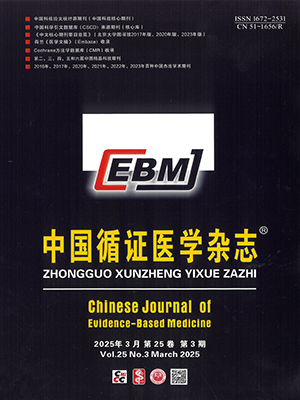| 1. |
U.S. Department of Health and Human Services. 2015-2020 dietary guidelines for Americans. Washington, DC: U.S. Department of Health and Human Services December, 2015.
|
| 2. |
Public Health England. The eatwell guide. London: Public Health England, 2016.
|
| 3. |
World Cancer Research Fund, American Institute for Cancer Research. Meat, fish and dairy products and the risk of cancer. Continuous update project expert report, 2019. Available at: www.wcrf.org/dietandcancer.
|
| 4. |
Bouvard V, Loomis D, Guyton KZ, et al. Carcinogenicity of consumption of red and processed meat. Lancet Oncol, 2015, 16(16): 1599-1600.
|
| 5. |
杨月欣, 张环美. 《中国居民膳食指南(2016)》简介. 营养学报, 2016, 38(3): 209-217.
|
| 6. |
Johnston BC, Zeraatkar D, Han MA, et al. Unprocessed red meat and processed meat consumption: dietary guideline recommendations from the nutritional recommendations (NutriRECS) consortium. Ann Intern Med, 2019, 171(10): 756-764.
|
| 7. |
Available at: https://nutrirecs.com/.
|
| 8. |
Institute of Medicine, National Academy of Sciences. Practice guidelines we can trust. Washington, DC: National Academies Pr, 2011.
|
| 9. |
Guyatt GH, Oxman AD, Vist GE, et al. GRADE: an emerging consensus on rating quality of evidence and strength of recommendations. BMJ, 2008, 336(7650): 924-926.
|
| 10. |
Han MA, Zeraatkar D, Guyatt GH, et al. Reduction of red and processed meat intake and cancer mortality and incidence: a systematic review and meta-analysis of cohort studies. Ann Intern Med, 2019, 171(10): 711-720.
|
| 11. |
Vernooij RWM, Zeraatkar D, Han MA, et al. Patterns of red and processed meat consumption and risk for cardiometabolic and cancer outcomes: a systematic review and meta-analysis of cohort studies. Ann Intern Med, 2019, 171(10): 732-741.
|
| 12. |
Zeraatkar D, Johnston BC, Bartoszko J, et al. Effect of lower versus higher red meat intake on cardiometabolic and cancer outcomes: a systematic review of randomized trials. Ann Intern Med, 2019, 171(10): 721-731.
|
| 13. |
Zeraatkar D, Han MA, Guyatt GH, et al. Red and processed meat consumption and risk for all-cause mortality and cardiometabolic outcomes: a systematic review and meta-analysis of cohort studies. Ann Intern Med, 2019, 171(10): 703-710.
|
| 14. |
Valli C, Rabassa M, Johnston BC, et al. Health-related values and preferences regarding meat consumption: a mixed-methods systematic review. Ann Intern Med, 2019, 171(10): 742-755.
|
| 15. |
GRADE pro GDT. GRADE pro guideline development tool. Ontario: McMaster University, 2015.
|
| 16. |
Johnston BC, Alonso-Coello P, Bala MM, et al. Methods for trustworthy nutritional recommendations NutriRECS (Nutritional recommendations and accessible evidence summaries composed of systematic reviews): a protocol. BMC Med Res Methodol, 2018, 18: 162.
|
| 17. |
Zeraatkar D, Bala M, Webber-Adams T, et al. Red meat and health outcomes: a systematic review. PROSPERO: 2017 CRD42017074074. Available at: www.crd.york.ac.uk/prospero/display_record.php?RecordID=74074.
|
| 18. |
Nussbaumer-Streit B, Grillich L, Glechner A, et al. GRADE: Evidence to Decision (EtD) frameworks - a systematic and transparent approach to making well informed healthcare choices 1: Introduction. Z Evid Fortbild Qual Gesundhwes, 2018, 134: 57-66.
|
| 19. |
Micha R, Khatibzadeh S, Shi P, et al. Global, regional and national consumption of major food groups in 1990 and 2010: a systematic analysis including 266 country-specific nutrition surveys worldwide. BMJ Open, 2015, 5(9): e008705.
|
| 20. |
庞瑛. 中西方饮食文化比较研究. 咸阳: 西北农林科技大学, 2011.
|
| 21. |
Takata Y, Shu XO, Gao YT, et al. Red meat and poultry intakes and risk of total and cause-specific mortality: results from cohort studies of Chinese adults in Shanghai. PLoS One, 2013, 8(2): e56963.
|
| 22. |
Li Y, He Y, Lai J, et al. Dietary patterns are associated with stroke in Chinese adults. J Nutr, 2011, 141(10): 1834-1839.
|
| 23. |
Yu D, Zhang X, Xiang YB, et al. Adherence to dietary guidelines and mortality: a report from prospective cohort studies of 134 000 Chinese adults in urban Shanghai. Am J Clin Nutr, 2014, 100(2): 693-700.
|
| 24. |
王柳森, 张兵, 王惠君, 等. 中国15省(区、直辖市)老年人肉类消费模式现状. 中国食物与营养, 2018, 24(10): 13-19.
|
| 25. |
张倩, 徐培培, 甘倩, 等. 2010-2012年我国6-17岁儿童鱼禽畜肉摄入频率. 首都公共卫生, 2017, 11(4): 142-144, 154.
|
| 26. |
尹香君, 王丽敏, 李镒冲, 等. 中国2012年18-59岁就业流动人口红肉摄入情况分析. 中华流行病学杂志, 2014, 35(11): 1202-1207.
|




